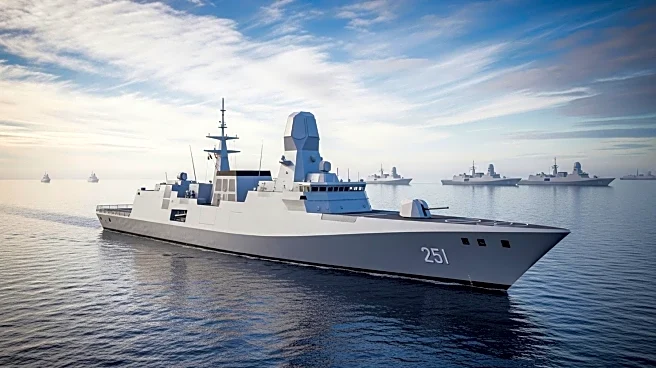What's Happening?
Norway has announced the acquisition of five British Type 26 frigates, marking a significant military investment valued at $13.5 billion. The decision was jointly announced by Prime Ministers Sir Keir Starmer and Jonas Store, emphasizing the close naval relationship between the UK and Norway. The frigates, designed for anti-submarine warfare, will be built to identical specifications for both the Royal Navy and the Royal Norwegian Navy, allowing for unified logistic chains and joint crew training. This move precedes a new UK-Norway defense agreement and highlights Norway's strategic focus on defending its northern region, which borders Russia. The frigates will feature hangars for anti-submarine warfare helicopters, enhancing their surveillance and attack capabilities.
Why It's Important?
This acquisition underscores Norway's commitment to bolstering its maritime defense capabilities, particularly in light of geopolitical tensions with Russia. The deal strengthens the naval partnership between the UK and Norway, facilitating joint operations and training. For the UK, this contract supports its shipbuilding industry, particularly in Scotland, and aligns with efforts to achieve economies of scale for the Royal Navy. The integration of advanced anti-submarine warfare technology is crucial for monitoring Russian submarine activity in the North Atlantic, a strategic area for NATO. The collaboration also reflects broader defense strategies among NATO allies, responding to increased security challenges in Europe.
What's Next?
The next steps involve finalizing the contract details and commencing the construction of the frigates. Both nations will focus on integrating the frigates into their respective naval operations, with potential adjustments to weapon fits to leverage Norwegian missile technology. The UK and Norway are expected to continue strengthening their defense cooperation, potentially expanding joint naval exercises and operations. The broader implications for NATO's strategic posture in the North Atlantic will be closely monitored, particularly regarding Russian military activities.










